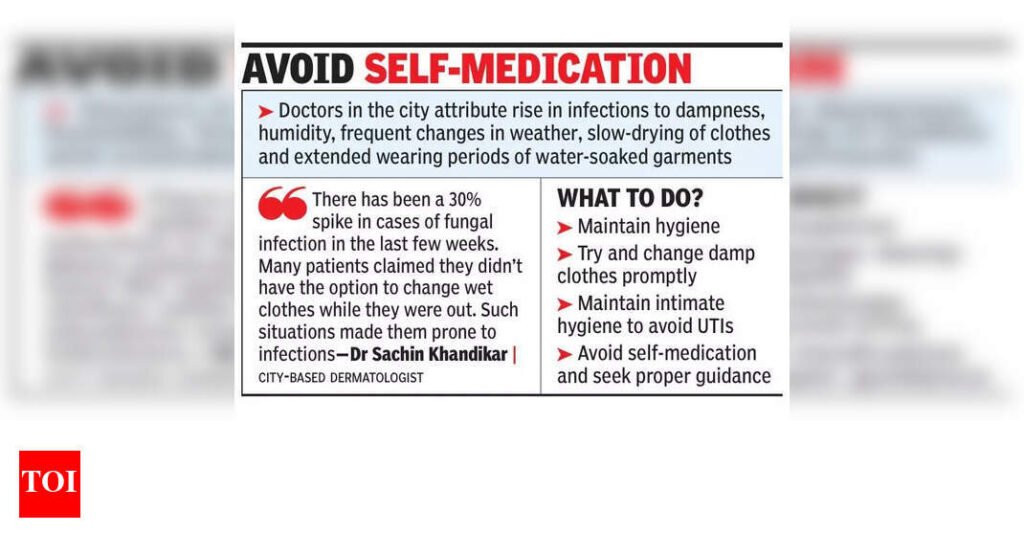Pune: Clinics across the city have reported a significant rise in fungal skin infections and urinary tract infections in the current monsoon.Doctors attribute the rise to prolonged dampness, slow-drying clothes and extended periods in rain-soaked garments. High humidity in the city and overcast skies have hindered the proper drying of clothes and personal layers. These situations created favourable conditions for seasonal infections.“There has been a 30% spike in cases of fungal infection in the last few weeks. Many patients claimed they didn’t have the option to change wet clothes while they were out. Such situations made them prone to infections,” said Dr Sachin Khandikar, a city-based dermatologist. He added that excessive humidity has created ideal conditions for fungal infections such as ringworm, athlete’s foot and candidiasis, which commonly affect skin folds like the groin, underarms, and spaces between the toes.Dr Deepa Singh, a Pimpri-based dermatologist, noted that the shift in temperature and constant perspiration also aggravate skin conditions. “Sweating during the monsoon irritates the skin and creates an ideal environment for fungi and bacteria to grow. Even something as simple as wearing damp socks for long can lead to fungal infections,” she said.Additionally, doctors have been treating mild rashes such as tinea versicolor and yeast-related irritation, which typically present as red, itchy patches or discolored spots in areas which remain warm and covered.Urologists and gynecologists in the city have also observed a seasonal uptick in UTIs, affecting both men and women. Common symptoms include burning sensation while urinating, a frequent urge to urinate, lower abdominal pain and sometimes fever or cloudy urine. Dr Paresh Jariwala, an urologist, said, “Sudden weather changes can weaken the immune system. People also tend to drink less water in the rainy season, which leads to dehydration and increases the risk of UTIs. Damp conditions can cause sweat and bacteria to accumulate around intimate areas.”Gynaecologist Dr Seema Mhatre emphasized the importance of preventive hygiene. “Changing damp clothes promptly and maintaining intimate hygiene is essential,” she advised.However, experts caution against self-medication. “People often reach for over-the-counter antifungal creams or antibiotics at the first sign of a rash, but this can do more harm than good. Topical steroid creams or inappropriate medications may temporarily reduce symptoms, but can worsen the infection over time. It’s important to get a proper medical diagnosis and follow prescribed treatment,” Dr Singh added.


